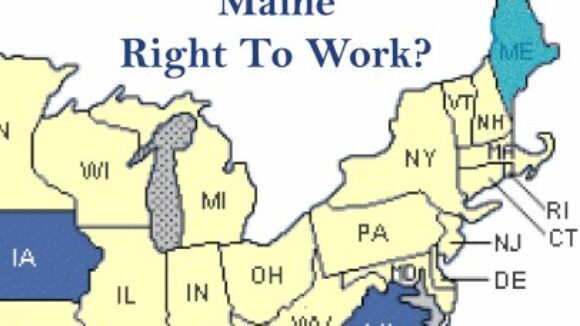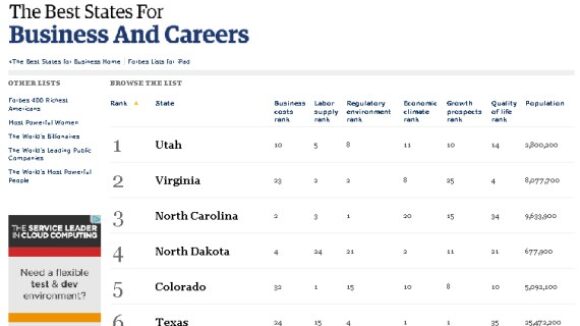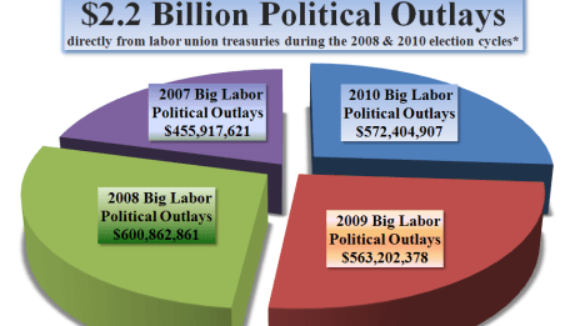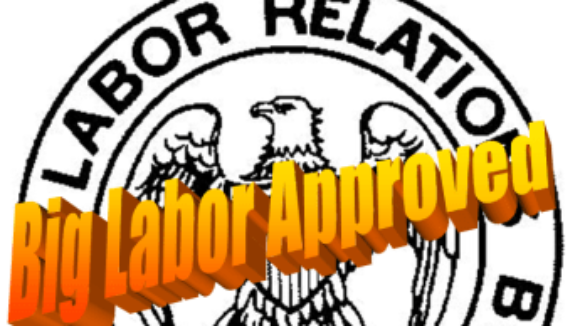Sick of being FORCED to pay for union bosses' politics? Right To Work is the Answer
Terry Bowman, a UAW member, writes in the The Detroit News that to end forced-dues-funded politics "the best and easiest solution is to pass a Right To Work law." And, he is right. The surest way to end compulsory-dues for politics is to end compulsory-dues. From Mr. Bowman's editorial: A worker's constitutional rights seem to take a back seat to the political privileges of the union. Earlier this year, UAW local 898 officials displayed their political views for everyone who drove by the union hall. "Recall Gov. Snyder, sign up here!" was the message glaring from the parking lot sign for all passers-by to see. A recent Harris poll shows that 60 percent of union households say that unions are too involved in politics, and we know that 40 percent or more of union households vote Republican. Unfortunately, union members who disagree with these partisan political attacks are forced, as a condition of employment, to financially support this message. Federal laws are supposed to restrict union officials from using regular dues for political purposes. Regrettably, it still happens all the time. In a 1988 Supreme Court decision called Communication Workers of America vs. Beck, unions were forbidden to collect full union dues from non-members; only those dues that are supposed to reflect the true cost to the union as a collective bargaining agent. In other words, members could choose to resign their union membership and then only pay what is called the "agency fee" to keep their job. Obviously, there are problems with this ruling. Workers who wish to exercise these rights have to jump through hoops, and they are then persecuted and ridiculed on the job for doing so. The agency fee also includes all the educational and subjective political activities that unions engage in. Union newsletters and magazines are full of political propaganda, and union officials travel the country spewing hateful venom and a destructive worldview, yet their salaries are paid for with regular union dues. And there is so much more.






